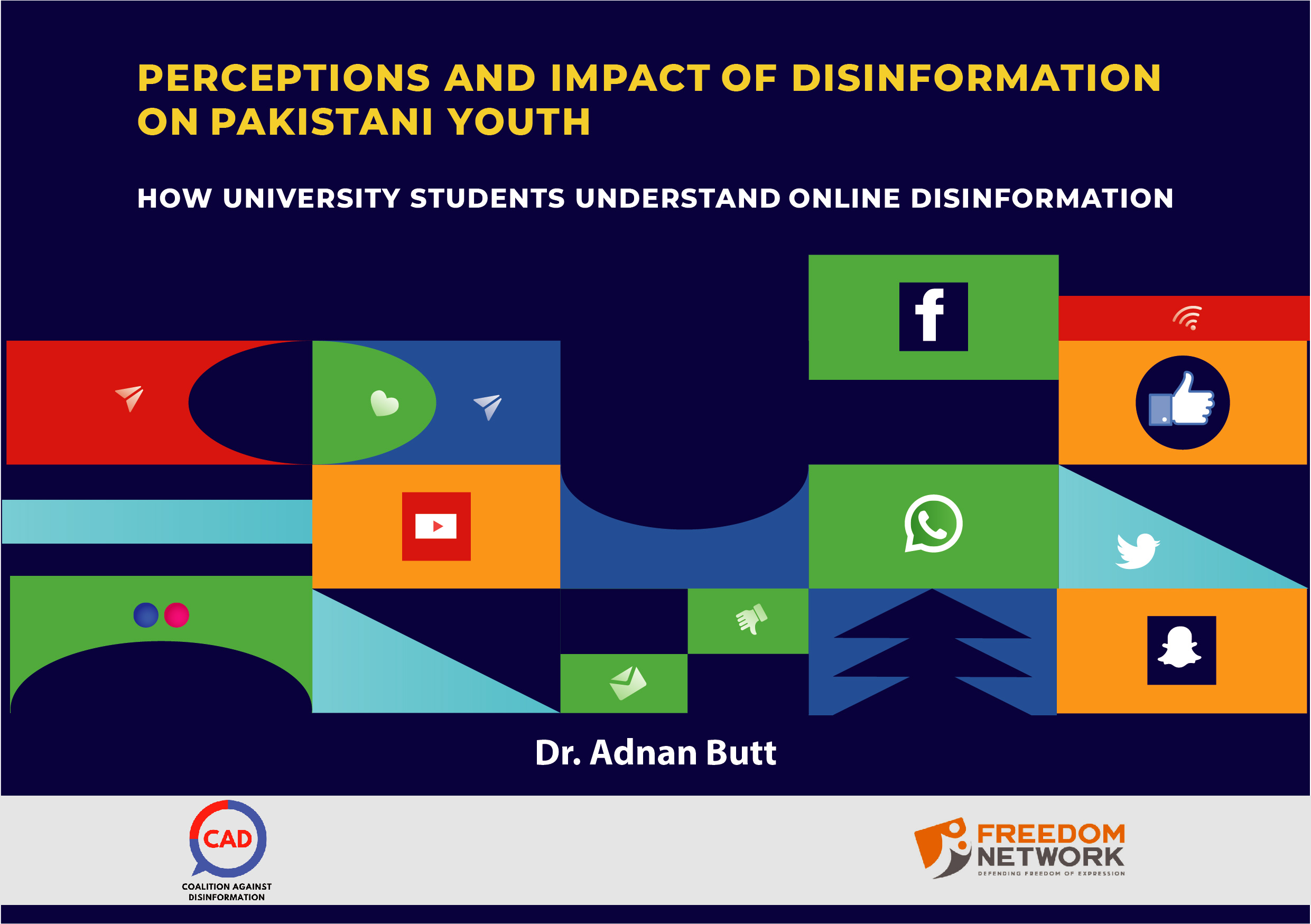ISLAMABAD (16 January 2024): University students in Pakistan think online disinformation is harmful for society but are mostly unaware of how to counter it in their Internet use, a new research study says.
The study “Perceptions and Impact of Disinformation on Pakistani Youth: How University Students Understand Disinformation” was published by media watchdog organization Freedom Network and the Coalition Against Disinformation (CAD), an alliance of academia, digital media, and civil society organisations that aims to address disinformation in Pakistan through media literacy initiatives.
The research was conducted collaboratively by the mass communication and media departments of 10 Pakistani public sector and private universities that are voluntary founding members of CAD.
Based on a national survey of 1,043 students, the study shows that 63% university students feel they encounter some form of online disinformation at least daily. A majority of the youth (81%) thinks social media websites are most prone to the spread of disinformation, and around 70% see Facebook as the most vulnerable social network for false messages.
In terms of perceptions, most students think disinformation is intentionally spread to manipulate the public and could lead to the spread of false beliefs. At least 62% of the students believe online disinformation “poses a threat to democracy and elections”.
The research also queried the student respondents about their levels of trust in online information sources and their behaviour based on trust. Around half of the youth frequently trust information provided by traditional news organisations and government websites. Trust in information supplied by vloggers and celebrity influencers was mostly occasional. Most students (around 60%) said they are more likely to click on, read or view, and share content that originates from sources they trust.
Finally, less than four in every 10 students claimed to actually fact-check the information they received online. A third of the students were not aware of fact-checking tools, and around 41% had never consulted professional fact-checking websites that debunk viral false claims.
“These findings indicate that even though local youth are concerned about false messages, they are limited in their ability to protect against the harmful effects of online disinformation,” Iqbal Khattak, executive director of Freedom Network, which manages the Coalition, and which supported the study, said.
Khattak added that the study provides an important glimpse into disinformation risks, as perceived by a significant social demographic – educated youth – that should help key stakeholders such as the Election Commission of Pakistan, political parties, the state and civil society to help address challenges posed to trust in media, political communication and national events such as elections scheduled in February.
Among other suggestions, the study recommends introducing media literacy programmes at universities and integrating fact-checking modules in the higher education curriculum to improve student capabilities to counter disinformation. It also suggests conducting national media literacy campaigns to educate citizens of all ages about source verification and the critical use of online information.
Click below link to download full PDF

